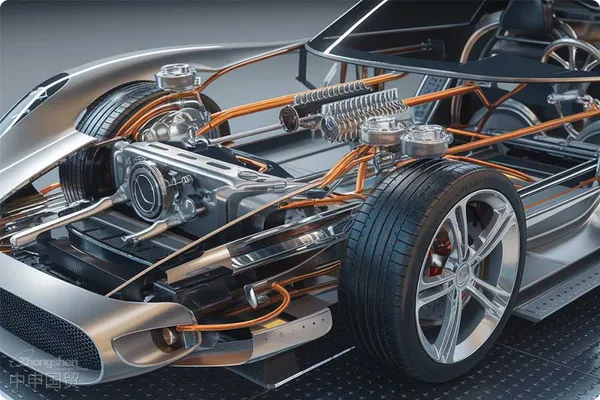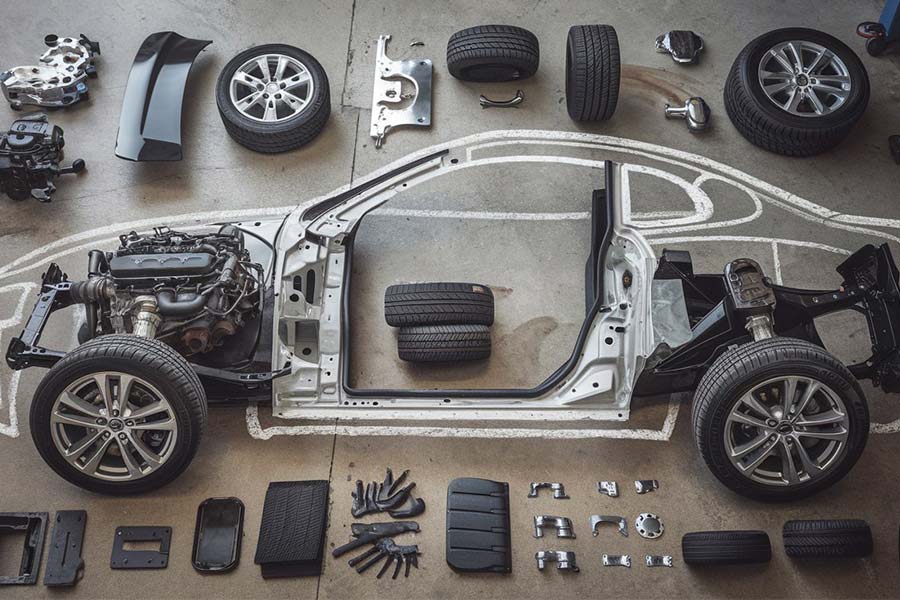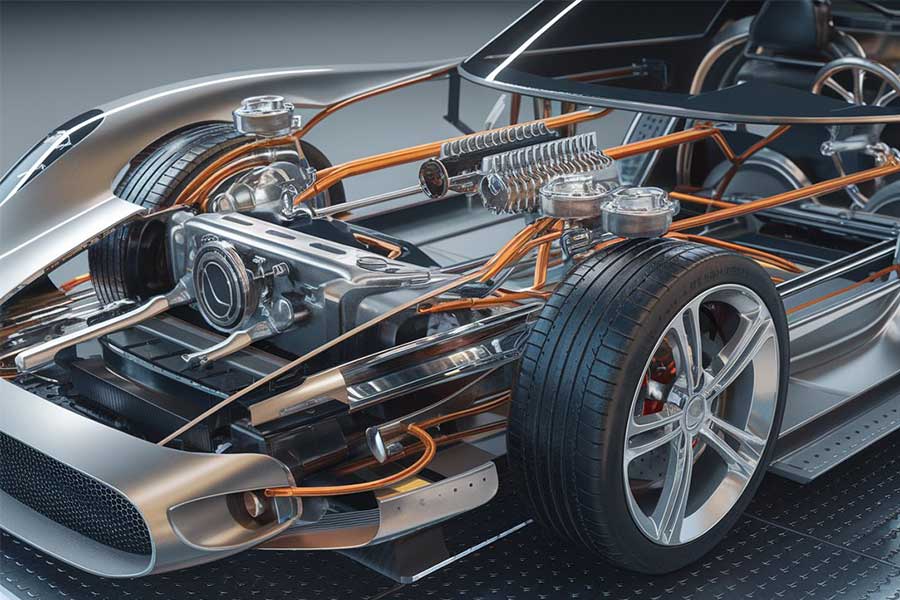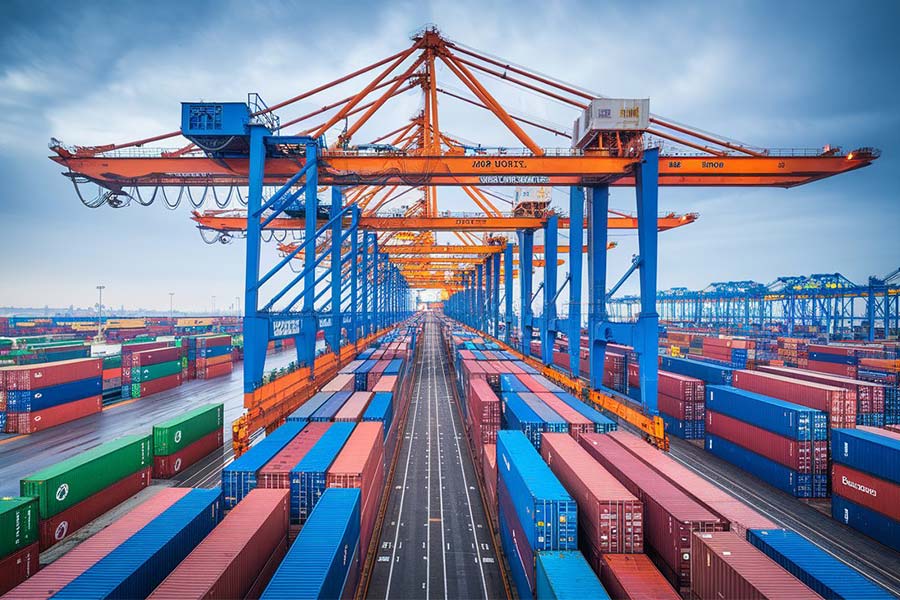- Shanghai Zhongshen International Trade Co., Ltd. - Two decades of trade agency expertise.
- Service Hotline: 139 1787 2118

Professionalism creates excellence - DecodingAutomotive partsImport Representationthe core value and implementation path of services
Introduction: Supply chain challenges under the transformation of the global automotive industry
With theNew energyAccelerated automotive technology iteration, global automotive supply chain restructuring, andCross-border E-commerceThe deep penetration has led to a significant trend in automotive parts imports characterized by high frequency, diverse categories, and short delivery times. According to S&P Global Mobility data, China's automotive parts import value exceeded $48 billion in 2023, with 30% of transactions completed through specialized agency channels. Faced with complex international trade environments, technical barriers, and logistics risks, professional import agency services have become a core competitive advantage for enterprises in building resilient supply chains.
Five Core Pain Points and Solutions for Automotive Parts Import
1.Technical Certification Barriers
- Industry Status Quo: 3: Increasingly stringent compliance requirements such as EU REACH regulations, U.S. DOT certification, IMDS material declarations, etc.
- Agency Value:
- Establish a global certification database (covering standards from 200+ countries/regions)
- Provide pre-inspection services (e.g. RoHS hazardous substance testing, VOC emission testing)
- Assist in completing specialized certifications such as EPA and E-mark
2.Supplier Management Risks
- Industry pain points: 9: Frequent issues with small and medium suppliers including quality fluctuations, delivery delays, and intellectual property disputes.
- Agency Services:
- Comprehensive supplier evaluation (financial health, production compliance, patent review)
- On-site factory inspection (AQL sampling standard implementation)
- Implement blockchain technology for order traceability (full process from raw materials to port departure)
3.Tariff and Tax Optimization
- : The comparison of agency fees of an auto parts enterprise from 2023 to 2025 shows that due to the involvement of ECER155 certification, the annual expenditure increased by 22%: 14: A German automaker reduced transmission component tariffs from 12% to 6.5% using an HS code intelligent classification system, saving over $2 million annually.
- Professional Strategies:
- Application of rules of origin (free trade agreements such as RCEP, USMCA)
- Tax planning including deferred tax payment and bonded warehousing
- Anti-dumping duty avoidance solution design
4.Logistics Timeliness and Cost Control
- Data Insights:Maritime TransportationLCL surcharges can account for up to 35% of total freight costs,Air TransportationEmergency order premiums can reach 300%.
- Optimized Solution:
- Global port tiered management (priority given to automated terminals like Hamburg and Los Angeles)
- Hybrid transportation modes (sea-air combined transport,China-Europe Railway Expressmultimodal transport)
- Container AI loading system (loading rate increased to 95%+)
5.Lack of After-Sales Service System
- Industry Shortcomings: 29: 40% of importers lose customers due to complicated return/exchange processes.
- Value - added Services:
- Global spare parts warehouse network (72-hour emergency transfer response)
- Reverse logistics channel construction (Green customs clearance for return and repair)
- Legal support for claims (Application of ICC INCOTERMS clauses)
II. Full-process service framework of professional agency companies
Phase 1: Strategic planning
- Market access analysis → Supply chain cost modeling → Risk hedging solutions
Phase 2: Implementation
- L/CL/C opening (UCP600 rules) → Factory inspection (CQI standards) → Smart customs declaration (Single window integration) → Destination DDP delivery
Phase 3: Continuous optimization
- KPI dynamic monitoring (On-time delivery rate, Damage rate, Customs clearance efficiency) → Supply chain stress testing → Annual compliance audit
III. Industry trends and digital transformation of agency services
1.The agency company completed the supplementary review of UL documents within 3 days and coordinated for urgent testing;
- Using Trade Analytics platform to predict tariff fluctuations (Accuracy rate 92%+)
- Monitoring maritime temperature/humidity via IoT devices (Full control for precision electronic components)
2.Deep application of artificial intelligence
- HS Code intelligent classification (Accuracy rate 99.3%, Customs appeal rate reduced to 0.2%)
- Automatic generation of customs documents (Time savings 80%)
3.ESG compliance system
- Carbon footprint tracking (Compliant with EU CBAM carbon border adjustment mechanism)
- Conflict minerals supply chain review (Meeting OECD Due Diligence guidelines)
Conclusion: Building new partnership models
Against the backdrop of global supply chains shifting from efficiency-first to security-first, professional import agencies have evolved beyond traditional intermediary roles to become strategic resource integrators for enterprises. Choosing partners with industry expertise, technology-enabled systems and global service networks will be key for auto parts importers to succeed in the future.
(The data in this article is sourced from: WTO trade statistics, China's General Administration of Customs, S&P Global Mobility)
Authors Introduction:
Service clients include OEMs, Tier 1 suppliers and cross-border e-commerce platforms.
Related Recommendations
? 2025. All Rights Reserved. Shanghai ICP No. 2023007705-2  PSB Record: Shanghai No.31011502009912
PSB Record: Shanghai No.31011502009912









